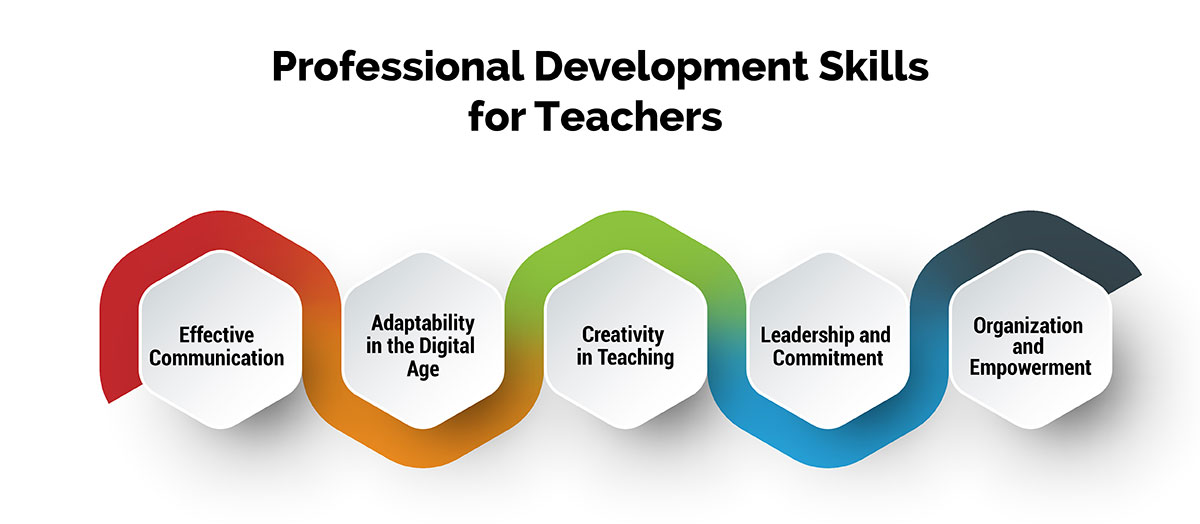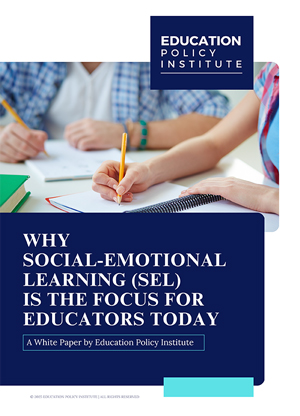In this world of transformative education, it is important that teachers are up to date and are standardized enough to deliver the right content in the right way. For that, continuously training and developing the teacher’s skills and knowledge is crucial as it then leads to nation building which is achieved through teacher professional development.
What is Teacher Professional Development?
Teacher professional development encompasses various forms of continuing education aimed at enhancing educators' skills and ultimately improving student outcomes. Learning opportunities can occur in formal settings such as conferences, workshops, and certifications, as well as informally through activities like independent research or peer discussions. These development initiatives can occur at different levels, including district-wide, within schools, or tailored to individual teachers or classrooms.
Research by organizations like OCED underscores the importance of professional development in expanding teachers' skill sets and enhancing classroom learning environments. Any activity or means through which teachers improve their teaching skills can be considered professional development.
Importance of Teacher Professional Development
Lack of continuous learning in any profession results in stagnation of ideas and professional growth. This not only hinders success but also fails to benefit the society, particularly critical in fields like teaching, wherein they shape the future generation. So, let’s delve into the reasons why teacher professional development is important.
-
Effective Teaching Practices
Investing in teacher professional development is crucial for promoting effective teaching practices. Educators who have access to ongoing learning opportunities are better equipped to address the diverse needs of their students, especially those who may require additional support or challenge. By staying abreast of the latest research, methodologies, and best practices in education, teachers can continuously refine their instructional strategies and create more engaging and impactful learning environments. -
Success and Retention of Teachers, New and Experienced
Professional development plays a vital role in supporting the success and retention of both new and experienced teachers. For new teachers, professional development provides essential support and resources to navigate the challenges of the classroom, helping them build confidence and competence in their roles.For experienced educators, ongoing professional development ensures that they remain motivated, inspired, and equipped with the latest tools and techniques to adapt to evolving educational landscapes.
-
Fosters Growth Mindset
Teacher professional development fosters a growth mindset among educators and students alike. By encouraging teachers to be active participants, professional development initiatives promote a culture of continuous improvement and lifelong learning within educational institutions.It enhances teacher morale and job satisfaction and creates a dynamic and innovative learning environment that benefits students' academic and personal growth.
-
Elevates Teaching Profession
This, in turn, attracts and retains high-quality educators, elevating the overall standard of teaching and learning within communities.
Professional development contributes to the overall advancement and prestige of the teaching profession. By investing in the professional growth of teachers, schools and educational organizations demonstrate their commitment to excellence in education and the well-being of their faculty. -
Career Opportunities
These professional development activities offer tangible advantages for teachers, including opportunities for career advancement, salary enhancement, and the acquisition of updated skills and credentials. By participating in professional development courses and workshops, teachers can expand their knowledge base, deepen their subject expertise, and develop valuable organizational and collaborative skills essential for success in the classroom and beyond.Summarizing, the benefits of teacher professional development are:
- Enhances Teaching Effectiveness
- Supports New and Experienced Teachers
- Fosters Growth Mindset
- Elevates The Prestige of Teaching Profession
- Offers Tangible Benefits
- Promotes Innovation
- Cultivates Collaboration
- Demonstrates Institutional Commitment
Opportunities for Teacher Professional Development
Teacher professional development can be achieved through various ways. Engaging in at least 2-3 varieties of opportunities would help keep teachers excited and enthusiastic throughout the training periods. Some of them are:
-
Conferences
These are large-scale gatherings where educators assemble to partake in keynote speeches, workshops, and networking sessions, offering exposure to a broad array of concepts and methodologies. -
Courses and Certifications
It encompasses formal educational programs provided by universities, colleges, or online platforms, covering subjects ranging from specialized content to teaching approaches and educational technology. -
Peer Learning Communities
They consist of collaborative groups of educators who convene to exchange experiences, ideas, and support each other's professional development through reflection and dialogue. -
Mentoring Programs
It pairs seasoned teachers with less experienced colleagues to offer guidance, assistance, and feedback on teaching methodologies. -
Action Research Projects
This involves structured inquiry within the classroom environment, where teachers pinpoint areas for enhancement, implement interventions, and assess their impact on student learning. -
Independent Study
It allows teachers to pursue self-directed learning opportunities through reading, attending webinars, or exploring online resources. -
Professional Learning Networks (PLNs)
These are online communities where educators connect, share resources, engage in discussions, and collaborate on teaching and learning projects. -
Coaching and Feedback
This entails one-on-one interactions with a coach or mentor who provides tailored support, observation, and feedback to help teachers enhance their instructional techniques. -
In-Service Training
It comprises professional development activities organized by schools or districts during scheduled in-service days, focusing on specific institutional goals or initiatives.
Effective Teacher Professional Development
Effective teacher professional development is crucial for enhancing classroom instruction and ultimately improving student outcomes. Here's how to ensure it:
-
Tailored and Relevant Content:
Recognize that each teacher faces unique challenges and possesses different skill sets. To make professional development meaningful, solicit input from teachers themselves. Offer options for workshops and courses, ensuring the topics align with the school's educational goals.For instance, group teachers by grade level or subject area to facilitate focused discussions and brainstorming sessions on relevant teaching strategies.
-
Engagement and Active Learning:
Treat teachers as educated professionals by engaging them actively in the learning process. Use varied teaching methods to cater to diverse learning preferences, such as hands-on demonstrations, collaborative brainstorming sessions, and sharing of experiences. Ensure that sessions are interactive and allow for practical application of learned concepts. -
Sustained Support and Feedback:
Professional development should not be a one-time event but rather an ongoing process. Provide continuous support and encourage teachers to seek assistance when needed.Utilize both student and teacher performance data to inform future areas of focus and refine teaching strategies. Incorporate follow-up sessions and coaching opportunities to facilitate reflection and improvement.
-
Integration into Teaching Process:
Embed professional development activities into the daily teaching routine to maximize time efficiency and relevance. Foster peer collaboration and observation to facilitate knowledge sharing and skill development.Encourage teachers to implement new strategies in the classroom and provide actionable feedback to support their growth.
-
Personalized Learning Plans:
Develop individualized Professional Development Plans (PDPs) for teachers based on their unique needs and career aspirations.Set SMART goals that are Specific, Measurable, Attainable, Relevant, and Timely, and track progress regularly. Offer resources and support to help teachers achieve their goals and enhance their teaching effectiveness.
By implementing these strategies, schools can ensure that teacher professional development is effective, impactful, and ultimately benefits both educators and students alike.
Skills to Impart for Teacher Professional Growth
When teacher professional training takes place, it is important to ensure that certain essential skills are rightly imparted, instilled and grown in a teacher to make the profession more meaningful and effective. Here, few important skills are mentioned:

- Effective Communication: Teachers must possess clear and concise communication skills to interact with students, parents, and colleagues, facilitating effective idea conveyance.
- Adaptability in the Digital Age: Teachers need flexibility to adjust teaching methods, classroom management, and lesson plans to changing educational standards and technological advancements.
- Creativity in Teaching: Utilizing creative thinking, teachers engage students in innovative learning experiences within standardized curricula, making lessons more enjoyable and impactful.
- Leadership and Commitment: Effective teachers lead by example, inspiring students and colleagues with confidence and commitment, fostering a supportive learning environment.
- Organization and Empowerment: Organized teachers prepare for challenges, maintain effective learning environments, and empower students to become critical thinkers and lifelong learners.
Key Resources for Enhancing Teacher Professional Development

- Online Certifications: Flexible and cost-effective, online certification courses allow teachers to enhance their skills at their own pace without disrupting their schedules.
- Webinars: offers teachers the flexibility to access expertise from educators worldwide.
- Mentoring: Pairing educators with mentors helps them navigate teaching challenges and fosters skill-sharing.
- Social Media & Communities: Online communities provide support and networking opportunities for teachers, particularly in challenging fields like early childhood or special education.
- Graduate Programs: Part-time graduate programs offer flexibility for teachers to advance their education while continuing to work, opening doors to leadership roles or specialized positions.
Conclusion
Teacher professional development is essential for enhancing classroom experience and student learning outcomes. By providing tailored and relevant training, fostering engagement and collaboration, and offering sustained support, schools can ensure effective professional growth for educators. Investing in resources like online courses, mentoring, and graduate programs further empowers teachers to excel in their profession and positively impact student learning.
Latest
Trends blogs
- From Vision to Impact: Closing the Gender Gap in STEM Education
- Automation, Artificial Intelligence, and the Future of Human-Centered Education
- Mid-Career Education in a Changing Labor Market
- The Next Phase of STEM Education: The Role of Artificial Intelligence in Classroom Curricula
Focus blogs
- Research-Driven Education: Strengthening Strategies, Policies, and Classroom Practice
- Professional Certifications for Career Growth: What Students and Young Professionals Need to Know
- Building a High-Impact Center of Excellence: What You Need to Know
- Beyond Graduation: The Importance of Lifelong Learning in Higher Education





